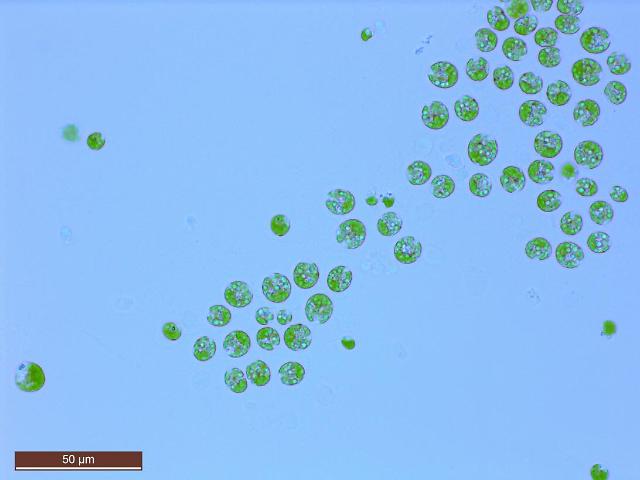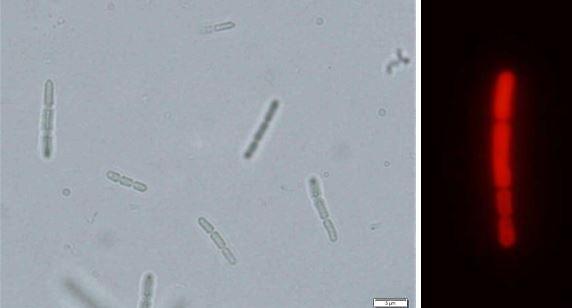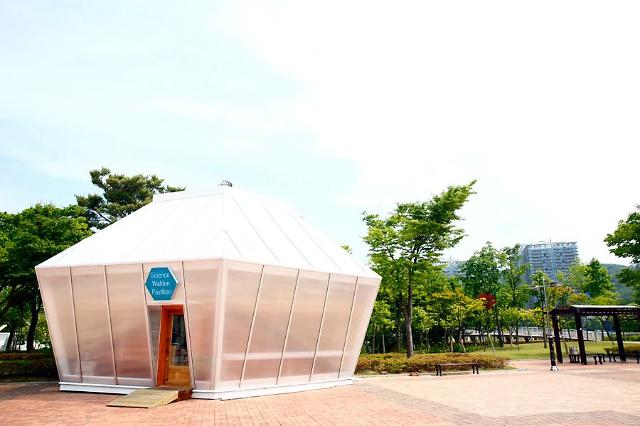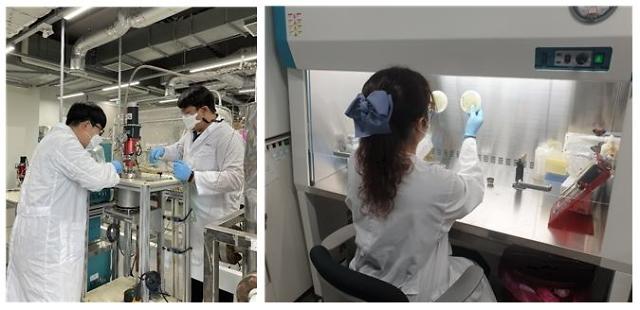
[Courtesy of KAERI]
Through photosynthesis, green algae use sunlight, water and carbon dioxide to create oxygen and energy in the form of sugar. Unconsumed sugar is stored inside cells in the form of starch. When green algae are fermented, starch turns into bioethanol, a zero-carbon principle fuel used as a petrol substitute.
The Korea Atomic Energy Research Institute (KAERI) said in a statement on November 17 that its team of researchers found a variome of Chlamydomonas, a genus of green algae, by exposing the microorganisms to radioactive rays. The new beefed-up algae can store up to twice as much starch and can grow 20 percent more than its original species.
KAERI said that because the new green algae were modified using a radiation breeding technique, it is free from environmental issues that are frequently caused by genetically modified organisms (GMOs). The radiation breeding technique exposes various tissue and organisms such as seeds and single-celled organisms to radiation in order to generate mutants with special traits. The method has been used for more than 80 years.
"The newly-developed green algae can be used in the production of biofuel and bioplastic," KAERI researcher Ahn Joon-woo was quoted as saying. The researcher said that the microalgae will contribute to the establishment of a zero-carbon society.




